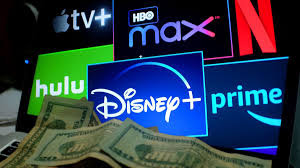 |
| Can you live without the internet? |
There is no simple answer as to whether or not the
internet is good or bad, or whether someone has a
healthy or unhealthy relationship with it. There are good parts about the internet and there are bad parts about it. Sometimes, a person will have a healthy relationship with it, and sometimes they will have an unhealthy relationship with it.
 |
Is your relationship with technology
unhealthy? |
I would describe an unhealthy relationship with technology/the internet as something similar to what we saw in the
song remix video: being solely dependent on your phone/the internet/technology. This would look like a person who cannot function without these. Someone who needs constant validation from others/the internet, someone who feels the only way they can express themself is through the internet, and someone who gets their ideas about life, school, etc. from the internet/someone who can't create their own ideas.
 |
| Is your relationship with technology healthy? |
I would describe a healthy relationship with technology/the internet as being able to continue life without having a meltdown or being confused as to how to continue if the internet vanished today. To me, this looks like, using your phone to search the internet when you're stuck, potentially having
social media accounts, but not being dependent on them, and doing activities/having hobbies that don't rely on technology.
For me, and I would assume for most people, my relationship with technology/the internet is neither healthy nor unhealthy. During a typical day, I rely on my phone, my laptop, and many other technologies in order to live. My phone tells me when to take my medicines, my laptop has all my class notes on it, my car has a GPS. Without these things, I honestly don't think I'd be able to live.
However, I am not solely dependent on them. I have social media accounts; however, I rarely use them. Recently, my
Instagram account got hacked. For a lot of people, this would be the end of the world, but because I don't use Instagram often, not having my account has not affected my life at all.
When I'm bored, I tend to scroll through TikTok or watch a show on a streaming service. However, I don't need these things. Yes, I would like to have them, but they're not necessary. I enjoy reading, writing, and coloring, all of which can be done without the use of technology, so I would be ok.
 |
| Is technology good or bad? |
The good/bad technology debate is something that has been going on since newer technologies have
been created, and I imagine it will continue well after we're gone. As stated in the
Final Blog Post Prompt, there are
unintended consequences to everything. No one created social media intending to also create
cyberbullying. No one intended for youth
suicide rates to skyrocket, but these are all things that
 |
| What will happen? |
happened. There are plenty of inventions that were created by accident (
Penicillin, the
microwave, etc.), just as there are plenty of things that new technologies have created.
The list of unintended consequences can go on and on and on. Plenty of people have dedicated their lives to finding solutions to these issues. But the internet isn't all bad. Like I said before, I rely on my GPS to get me from place to place. Before GPS, people had to look at maps to find out where they were going and memorize or print out the steps to get there.
 |
| How is technology useful? |
Professor Smith told us about when his car broke down and he didn't have a phone. He had to walk pretty far to find someone with a phone and call for help.
Cell phones now allow people to call 911 at the click of a button. For
iPhones, you simply click your power button five times, and emergency services are called.
 |
| What is your relationship with technology? |
Similar to the unintended consequences, the list of positive effects of technologies can go on and on. Just like nearly everything else on this planet, technology and the internet have infinite positive and negative effects. So, as I stated before, there is no simple answer as to whether or not the internet is bad or good, or whether or not you have a healthy or unhealthy relationship with it. Like most things, it lands in the middle.











































